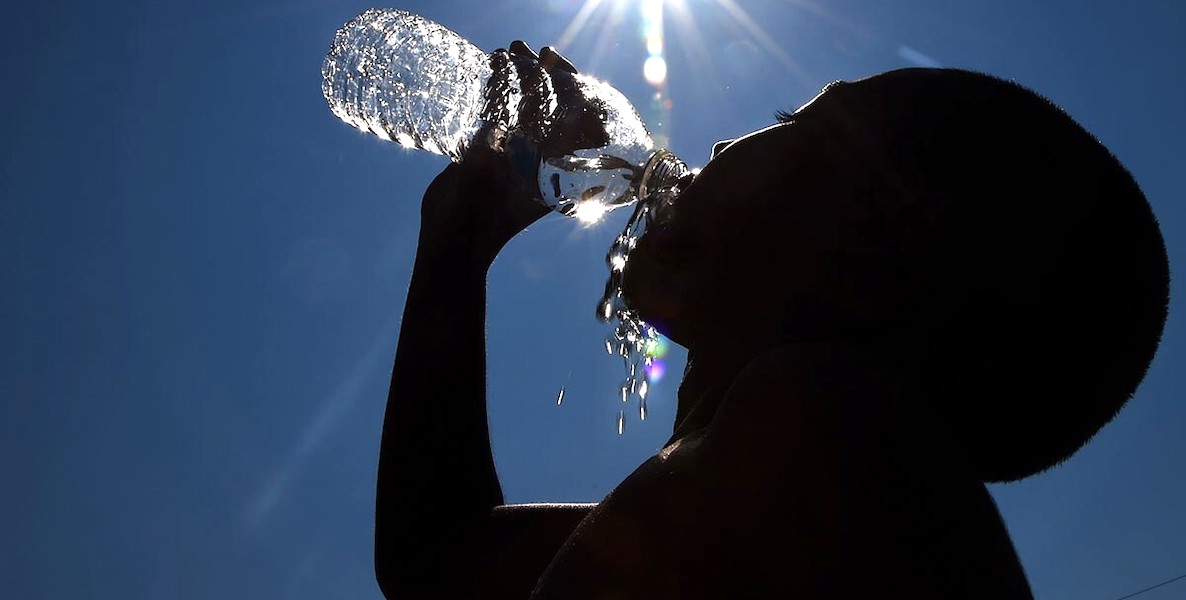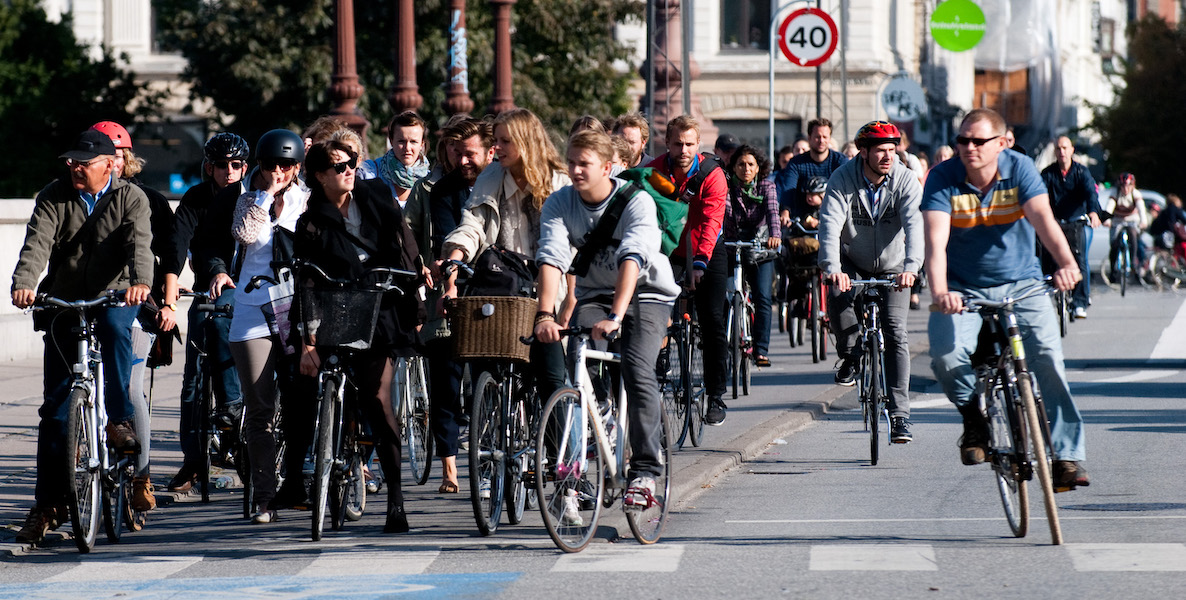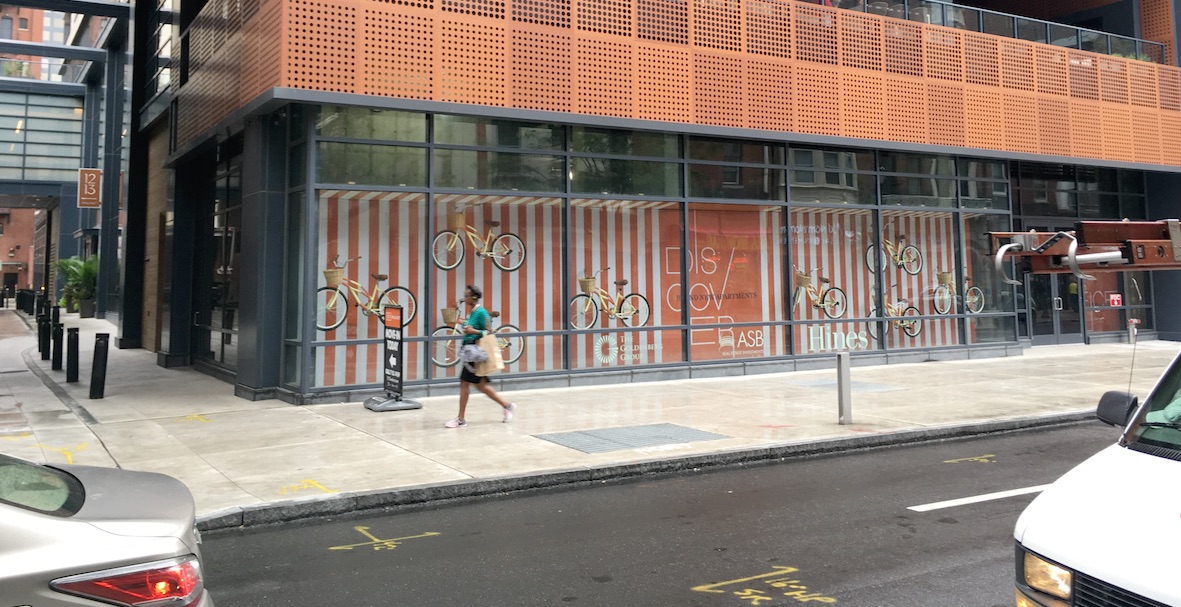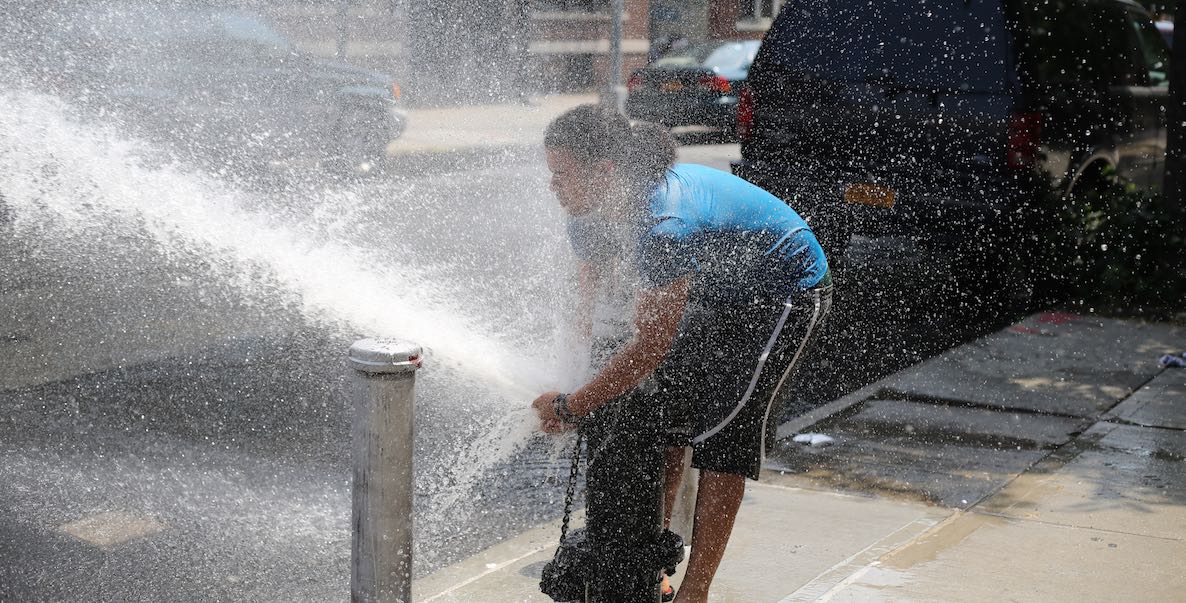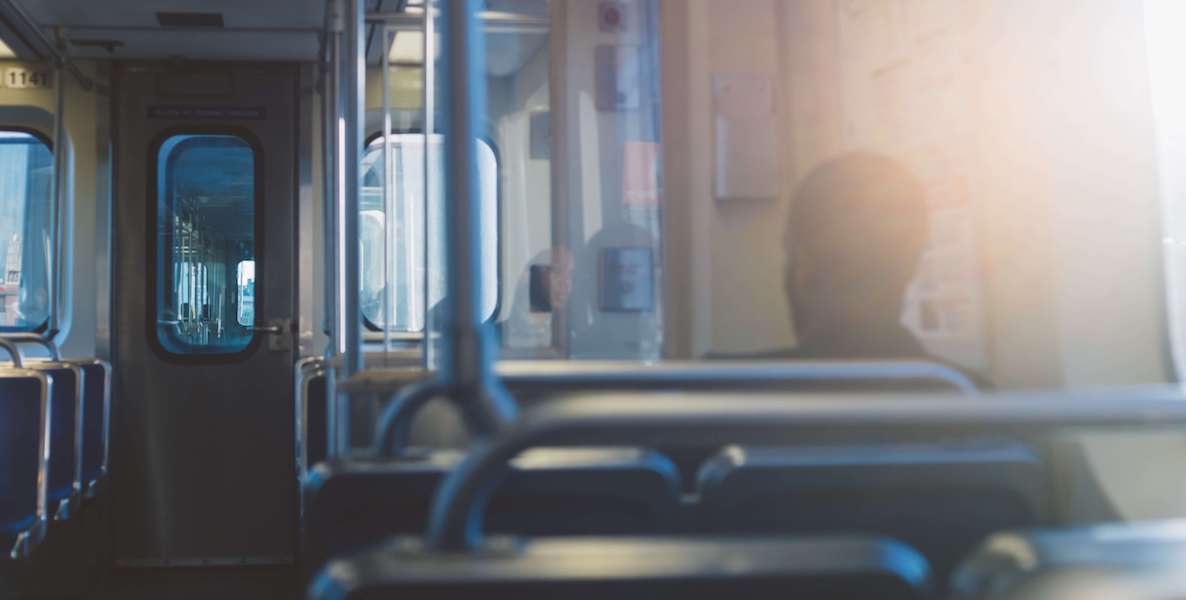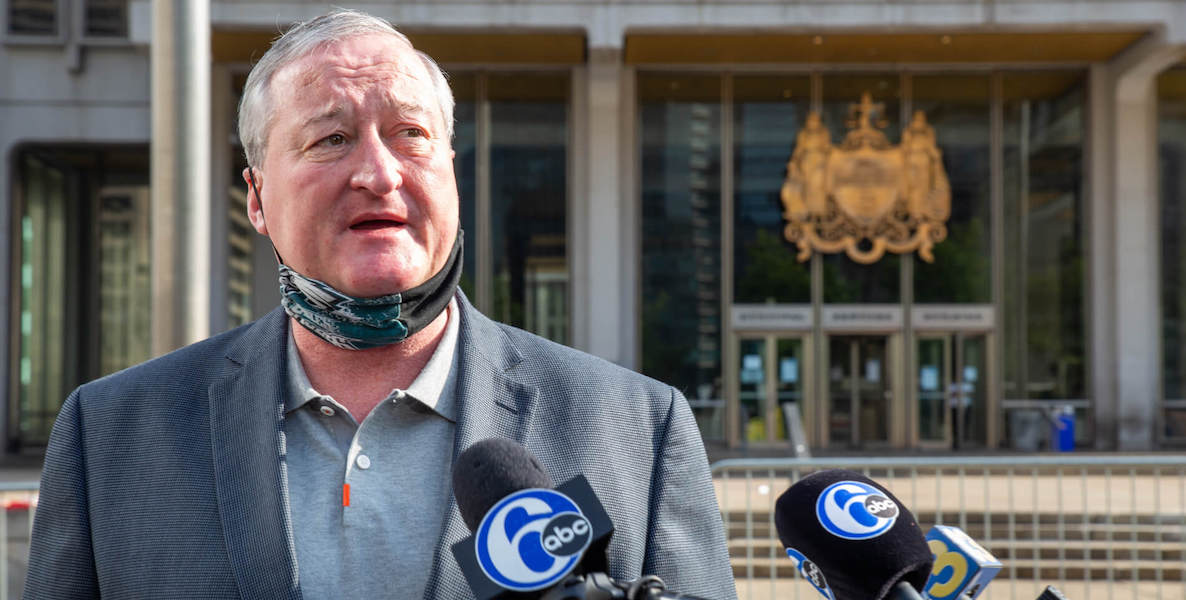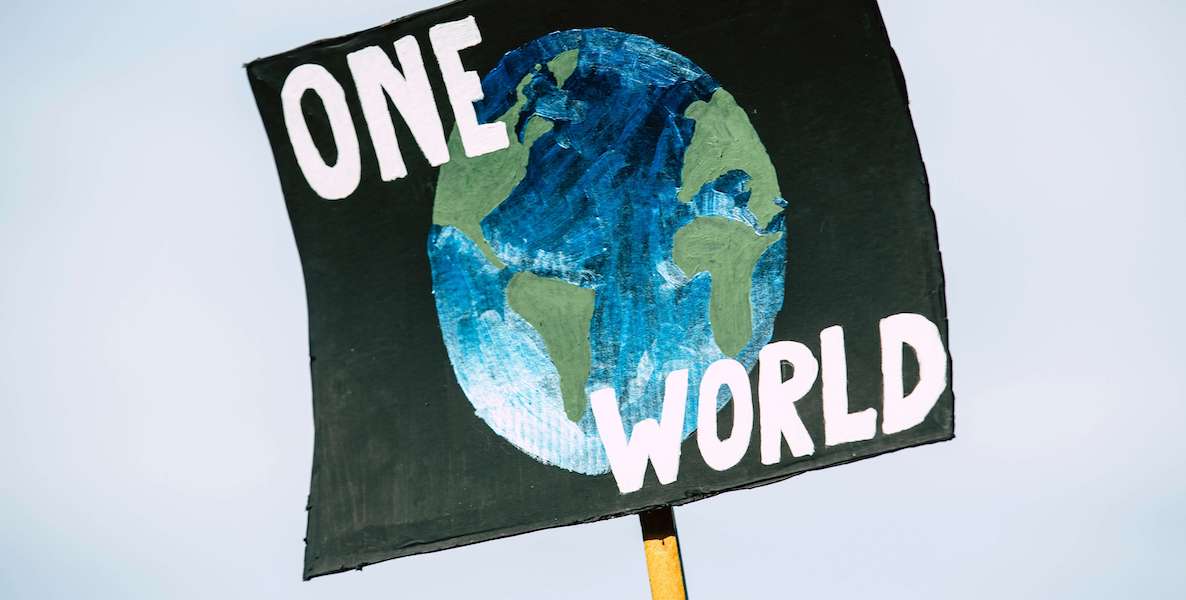to this story in CitizenCastListen
Philly’s not the only place where that’s happening. Such scenes are playing out in a number of major urban centers with large vulnerable populations without access to air conditioning.
As heat waves intensify, it’s become commonplace for cities to issue “Code Red” days in tandem with “Extreme Heat” warnings from forecasters. That’s followed by a now-normal routine of “cooling centers,” typically municipal-controlled public spaces with central air where residents can escape the hot weather and find reprieve under an AC vent or refresh next to a fan.
What we have now is not enough
Setting up a cooling center infrastructure during a pandemic, however, is clearly problematic these days. In response to this month’s heat wave, the City set up 10 cooling centers around Philly, which included some schools, libraries and parked SEPTA buses. Clearly, that is not enough—as this WHYY article noted last week, none of those centers are in Hunting Park, which may register temperatures up to 20 degrees higher than some other parts of the city, or in South Philly, where Point Breeze is a dangerous urban heat island.
As the city’s director of sustainability, Christine Knapp, acknowledged during a recent episode WURD’s Reality Check: “We’re clearly not going to be able to do what we’ve done before.”
And, so, Philly’s most distressed residents must resort to doing it the usual Philly hard way: leaving their homes, in some cases dragging their kids along with them, in oppressive and life-threatening heat on an epic quest for a cool spot that they can sit in for a limited amount of time.
That might cool them down for an hour or two or three (if they’re lucky or don’t get thrown out), but it doesn’t resolve the larger issue of what they do when they go back to a home with no AC, baking in Philly’s notorious, pollution-caked urban heat island (now stinking courtesy of fewer trash pick-ups).
Demand actionDo Something
This is especially dangerous for senior citizens in Philly, who won’t be able to utilize the spraygrounds around town (which, anyway, are only open during the day). Those seniors are already hurting: More than 20 percent of Philadelphians over 60 live in poverty, the highest percentage of any of the nation’s largest cities, according to the Philadelphia Corporation for Aging. While we can’t put our finger on exactly how many don’t have air conditioning in their homes, It’s a tragically safe bet that an alarmingly high number don’t.
Seniors are already most vulnerable to Covid-19, so least likely to leave their homes. Plus, the neighborhoods hit hardest by Covid-19 infection in Philly are, unfortunately, the neighborhoods most likely to burn up in brutal heat waves.
If it’s not heat-related illness that will incapacitate residents (or worse) in those sections, it will be the rising violence that instantly spikes and correlates with higher temperatures, a trend in every major city.
“This isn’t a mystery”
Even in a pandemic with slimmer local budgets now depleted due to lower tax revenues, residents shouldn’t be forced into precarious heat wave situations.
While recorded heat-related deaths have decreased in Philadelphia over the years (especially compared to the infamous summer of 1993 when 118 recorded deaths were related to heat), the negative public health impacts instigate numerous ripple effects, from worsened chronic illness conditions to unbearable economic and housing arrangements.
The thing is: this isn’t a mystery. Philly has known about its heat problem for quite some time, with residents and elected officials simply treating it as an inconvenient aspect of Philadelphia life.
our heat woesRead More
Each year, Philly hasn’t yet found a cooling stride to ease intense heat. The best it’s doing this cycle is a barely marketed layer of limited cooling centers, air-conditioned SEPTA buses that you have to rush through the heat to catch and, if you’re lucky, a free fan … which is going to just blow more hot air. That last item will just blow more hot air. Running out to find coolness seems both ridiculous, insensitive and logistically unfeasible given folks must limit how much they’re navigating into crowded spaces these days.
So, why not just give out free AC units?
Even other cities as financially strapped as Philly have found ways to provide cooling measures like free air-conditioning units for low-income eligible residents, mostly for seniors, who are most at risk for both Covid-19 and heat-related illnesses.
New York City, for example, is stepping up with an ambitious $70 million program secured through grants, with the goal of installing 74,000 free AC units throughout the city of nearly 9 million. About $20 million of that amount will also be dedicated to utility bill assistance, as increased electricity usage is expected from the new AC units.
The city of Baltimore outright purchased 1,200 AC units through a multi-agency effort and is in the midst of distributing those to eligible residents along with 25,000 fans. It’s unclear, still, how much that’s costing Baltimore, but it’s a step in the right direction and a model that could expand as need rises.
Of course, the main issue is always cost. Philly’s outgoing Managing Director Brian Abernathy recently gave the city’s classic “well-what-do-you-expect-us-to-do” shrug on the matter, a mix of repeating budget challenges and this unusual fear influential Philadelphians in general have about demanding help from city-based businesses and large institutions.
You’d think cooling in Philly would be a priority, given the frequency of heat waves, how it aggravates chronic illness and threatens seniors and how much intense heat is correlated with rising violence. Doesn’t sound like it.
Other possible solutions
There are a number of things that could happen, however, to get Philly there. One proposal that could have been pushed, particularly as the City Council put added pressure on landlords not to evict pandemic stressed residents, is a mandate for property owners to install air conditioning—cheap, but energy-efficient room, window and space units are fine—in their apartments.
With climate change and heat waves the norm, and half of Philly’s population renting, this should be a no-brainer. That also takes the burden of cooling costs off the revenue-strapped city and transfers that onus to the property managers. Yet, it’s an uphill battle in most states to include AC as a part of habitability.
Still, some cities and counties are successfully passing it as a mandate.
The large D.C. suburb of Montgomery County, Maryland, passed it into law right before the pandemic (“Air conditioning has become a life-or-death issue, not just a comfort issue,” Montgomery County Council Vice President Tom Hucker told The Washington Post). Cities with blazing, over-100-degree days as a norm like Dallas, Texas, and Phoenix, Arizona, also require AC in rental units. What, exactly, is the deal with Philly?
Tax credits could also come in handy for a situation like this in a number of ways. “The state should provide tax credits to utility companies [such as PECO in the case of Philly] for leasing HVAC units to low-income customers,” PA State Rep. Chris Rabb imagines, a proposal he mulled on for last session.
And there could be tax credits for HVAC installation services that either donate refurbished AC units or contribute their services to city officials for the installation of units in low-income homes, or a combination of the above.
Some of that, in terms of tax credits and the purchase of AC units, could be offset through the longtime, popular LIHEAP program, otherwise known as the Low Income Heating Assistance Program.
Green up (and cool down)DO EVEN MORE
Some states are using those funds towards the purchase of AC units for “summer crisis” as some places describe it, according to the National Energy Assistance Directors Association—and many are doing it even as COVID-19 crushes their budgets. In Pennsylvania? Nope—perhaps because Harrisburg is still thinking mostly about rural and suburban residents with enough green space to stay cool versus mostly Black urban heat island residents who can’t even find a cool room.
As always, how to spend money and where to get savings depends on how much City Hall limits its fiscal imagination—and how much residents allow them to do that.
City Hall can’t escape this by simply pointing to pandemic as the reason: Last we checked, the pandemic hit New York City, the world’s epicenter of coronavirus infection for several weeks, and Baltimore.
All cities are hurting. But, unlike Philly, they understand they could hurt from accumulated social costs when their residents are slowly baking in heat wave ovens.
While Philly’s city leaders, assorted nonprofits and institutional heads get to sit up in comfortable air-conditioned homes and offices, it’s just not an urgent matter for them. That has to change.
Clarification: A stat about temperature differentials in Hunting Park was misleading. The neighborhood can register 20 degrees hotter than other neighborhoods in Philly, according to research by Arizona State University.
Photo by Dyana Wing So on Unsplash


